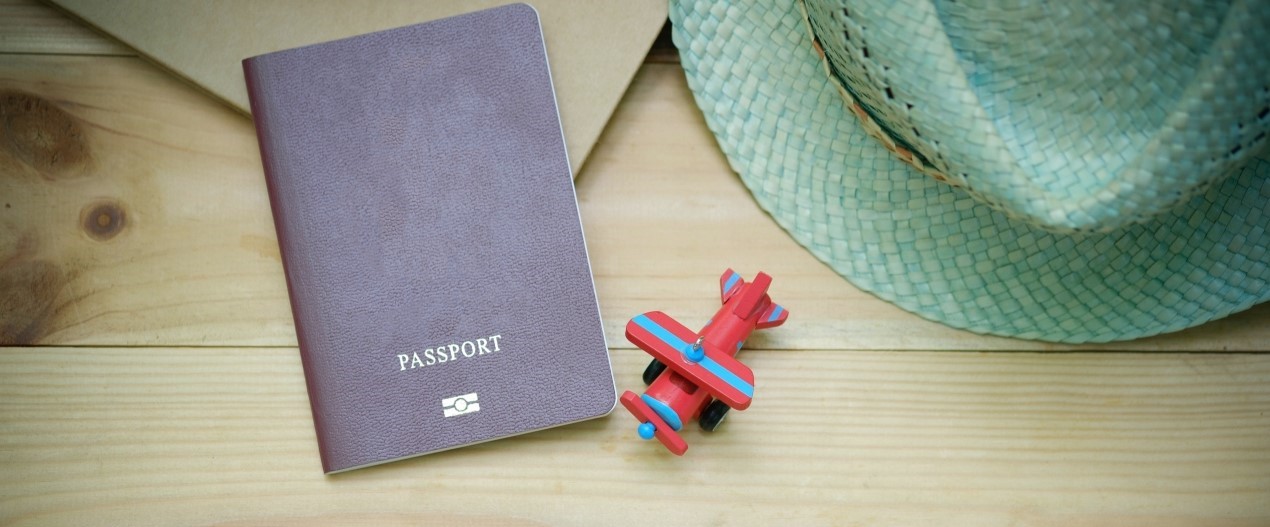
Visa Types

Visa Types
The following information is a basic guide for some of the common nonimmigrant visa types seen in higher education. This page is for informational purposes only. Please note that immigration regulations are subject to change and can vary depending on the case or situation. If you have any questions about bringing a foreign national to campus or visa types, please always consult with CGPS.
For more information, please see the U.S. Department of State Directory of Visa Categories.
VISA TYPES |
|||
Visa Type |
Description |
EmploymentRestrictions |
Study Restrictions |
B-1 |
Visitor for Business: Individuals in the U.S. for a short period of time to engage in business activities such as negotiating contracts for overseas employees, consulting with business associates, attending professional conferences, or conducting independent research. |
Not permitted to be employed in the U.S. In some cases, may receive academic honorarium reimbursements for incidental expenses and per diem for degree or certificate. |
Casual, short-term classes that are not the primary purpose of the alien’s presence in the U.S. may be permitted. Classes leading to a degree program are prohibited. |
B-2 |
Visitor for Tourism: Individuals in the U.S. for travel, tourism, or recreation. |
Same employment restrictions as B-1. |
Same study restrictions as B-1. |
WB, WT |
Visa Waiver for Business (WB) and Tourism (WT): Individuals permitted to enter the U.S. without a visa for a stay up to 90 days. Available only to citizens of countries designated by the U.S. Department of State to participate in the Visa Waiver Program. Individuals entering the U.S. under the Visa Waiver Program are not permitted to extend the length of stay or change visa status within the U.S. |
Same employment restrictions as B-1. |
Same study restrictions as B-1. |
E-3 |
Australian Specialty Occupation Workers: Permits citizens of the Commonwealth of Australia to enter the U.S to perform services in a “specialty occupation.” Foreign nationals on an E-3 visa may be admitted initially for a period up to two years, and extensions of stay may be granted indefinitely in increments of up to two years. There is no limit on the total length of stay for an E-3. |
Employment permitted “incident to status” only with the employer through which they obtained E-3 status. |
May engage in incidental study while in the U.S |
F-1 |
Student: Individuals in the U.S. engaging in a full course of academic or language study in an accredited educational program. |
Students may be employed on campus at the school they are authorized to attend for a maximum of 20 hours per week while classes are in session. During school vacations, F-1 students may work on campus full-time if otherwise eligible and intending to enroll for the next term. F-1 students may be eligible to work on CPT or OPT, which requires authorization from CGPS or USCIS, respectively. See Student Employment webpage for more information. |
Students must be enrolled for a full course of study. Degree seeking students must enroll full-time for the Fall and Spring semesters. Authorization to enroll for less than full-time must be granted by CGPS prior to taking classes part-time. |
F-2 |
Dependent spouse or child (under 21) of F-1 Visa Holder: Individuals in the U.S. as dependents of an F-1 visa holder. |
Not permitted to work in the U.S., includes work for no pay. |
The F-2 spouse may NOT engage in full-time study. Study must be avocational/recreational (part-time). The F-2 child may engage in full-time study in elementary or secondary school (K-12). |
H-1B |
Temporary Worker in a Specialty Occupation: Individuals in the U.S. to perform professional services for a sponsoring employer in a specific position for a fixed time period. |
Employment permitted “incident to status” only with the employer that has an approved H-1B petition on behalf of the foreign national. Multiple concurrent H-1B petitions filed from different employers are permitted. |
May engage in incidental study while in the U.S. |
H-4 |
Dependent of H Nonimmigrant: Individuals in the U.S. as dependents of an H visa holder. |
Not permitted to work in the U.S. except in special circumstances when the H-4 spouse is eligible to apply for an EAD card. H-4 dependent spouses may only apply for an EAD if their H-1B spouse: 1) is the principal beneficiary of an approved Form I-140, Immigrant Petition for Alien Worker; or 2) has been granted H-1B status beyond six years under sections 106(a). |
No study restrictions. May engage in part- or full-time study. |
J-1 |
Exchange Visitor: College/University Student: Individuals in the U.S. for the primary purpose of studying at an institution of higher education under the sponsorship of an exchange visitor program designated by the Department of State. |
On-campus employment must be authorized in advance by CGPS. On-campus employment is limited to 20 hours per week while school is in session (full-time during official school breaks). May be authorized for “Academic Training” related to the student’s course of study either before or after completing the course of study. See Student Employment webpage for more information |
Must maintain full-time enrollment. Authorization to enroll less than full-time must be granted by CGPS in advance. Degree seeking students must enroll full-time for Fall and Spring semesters. |
J-1 |
Exchange Visitor: Student Intern: Programs designated in the College and University Student category can also sponsor Student Intern Category. Available only to foreign students currently enrolled and pursuing a degree at a postsecondary academic institution outside the U.S., whose U.S. internship will “fulfill the educational objectives for his or her current degree program at his or her home institution”. |
May only be employed pursuant to the terms of the internship described on their Form DS-7002. |
May engage in incidental study. |
J-1 |
Exchange Visitor: Professor, Researcher, Short-Term Scholar and Specialist: Individuals in the U.S. as visiting researchers, professors, short-term scholars, or specialists, under the sponsorship of an exchange visitor program that has been designated by the Department of State. |
May be employed “incident to status” only by the designated program sponsor and within the guidelines of the program during the validity of the DS-2019. Under limited circumstances, professors, researchers, and short-term scholars may receive compensation from other institutions with prior authorization in SEVIS from their designated program sponsor (CGPS). |
May engage in incidental study. |
J-2 |
Dependent of a J-1 Exchange Visitor: Individuals in the U.S. as dependents (spouse or unmarried child under the age of 21) of a J-1 exchange visitor. |
Eligible to apply to USCIS for employment authorization. With EAD card issued by USCIS, may work for any employer. |
No study restrictions. May engage in part- or full-time study. |
L-1 |
Intracompany Transferee: Individuals in the U.S. who have been transferred from a subsidiary, affiliate, or branch office overseas to the U.S. to work in an executive, managerial, or specialist capacity. |
May be employed only by the company that obtained the L-1 status on their behalf. EAD card not required. |
May only engage in incidental study while maintaining L-1 status. |
L-2 |
Dependent of L-1 Visa Holder |
An L-2 spouse may work only with an EAD card. L-2 dependent children cannot work. |
May engage in part- or full-time study. |
O-1 |
Workers of Extraordinary Ability: Individuals of extraordinary ability in the sciences, arts, education, business, or athletics who are in the U.S. to work for a sponsoring employer or organization. |
May be employed “incident to status” by the petitioning employer or agency through whom the status was obtained. EAD card is not required. |
May engage in incidental study while maintaining O-1 status. |
O-2 |
Accompanying alien who assists in an artistic or athletic performance of an O-1 nonimmigrant: The O-2 visa category is not available to aliens accompanying O-1 aliens in the fields of science, business, or education. |
May be employed “incident to status” by the petitioning employer or agency through whom the status was obtained. |
May engage in incidental study while maintaining O-2 status. |
O-3 |
Dependent of O-1 or O-2 Visa Holder |
Not permitted to be employed in the U.S |
May engage in part- or full-time study. |
T N |
Professionals under NAFTA (for Citizens of Canada and Mexico): Individuals in the U.S. to perform professional services for a sponsoring employer in a specific position for a fixed period of time, pursuant to the provisions of the North American Free Trade Agreement (NAFTA). |
May be employed “incident to status” only by the sponsoring employer through whom the status was obtained in an activity in accordance with the provisions of the treaty. May be employed by more than one employer but must obtain TN status for each employer. |
May engage in incidental study while maintaining TN status. |
TD |
Dependent of TN Nonimmigrant: Individuals in the U.S. as dependents of a TN nonimmigrant. |
Not permitted to be employed in the U.S. |
May engage in part- or full-time study. |
This information is based on a publication distributed by NAFSA: Association of International Educators entitled, Immigration Classifications and Legal Employment of Foreign Nationals in the United States, by Gail Rawson.
ISSS Disclaimer: The information contained on this web site is provided as a service to international students, faculty, staff, employees, and administrators at the University of Delaware, and does not constitute legal advice on any immigration, tax, or other matter. As legal advice must be tailored to the specific circumstances of each case, and laws are constantly changing, nothing provided herein should be used as a substitute for the advice of official counsel. For assistance on your immigration status, we encourage you to contact an ISS advisor for specific guidance at oiss@udel.edu.


